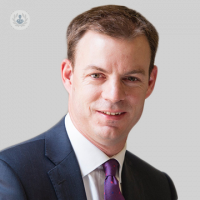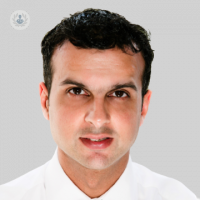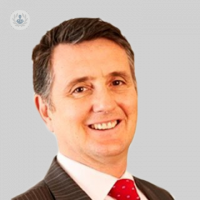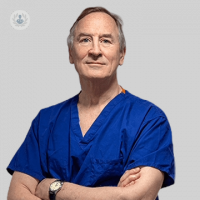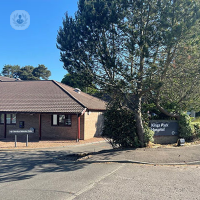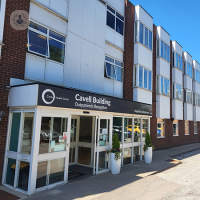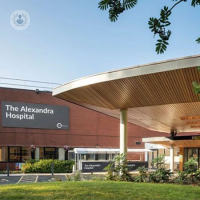What are sports injuries?
Competitive and non-competitive sports injuries are injuries that occur in athletic activities or whilst exercising. Whilst some of these happen by chance, others are facilitated by inadequate practice or poor execution in terms of technique, as well as by not using sports equipment correctly.
Sports injuries mainly consist of muscle injuries or joint and ligament injuries, such as:
- dislocations
- muscle injuries (sprains, pulled muscle, cramps)
- back injuries
- bone fractures
- tendon injuries

Prognosis
The outlook of a sports injury greatly depends on what caused it and its severity. Imaging studies can rule out structural injuries and help to assess the severity of the injury itself.
Furthermore, based on the results, the specialist can estimate how long it will take for you to recover and get back to sports, as well as your risk of getting injured again.
What are the symptoms?
The symptoms of a sports injury depend on how big and how severe the injury is. They usually include:
- immediate onset of pain
- stiffness of the affected muscle
- swelling
- bruising
- increased sensitivity of the affected area
- a feeling of heat emanating from the affected area
- decrease in range of motion
How are they diagnosed?
Sports injuries, especially muscular ones, can be diagnosed with a physical examination.
The following tests may be prescribed to get further insight on where the injury is and how severe it is:
- X-ray scan
- computerised tomography (CT) scan
- magnetic resonance imaging (MRI) scan
- ultrasound
- bone density scans
What causes sports injuries?
As an example, the main risk factors for a football injury are:
- muscle fatigue
- age
- cold or wet weather
- poorly maintained training field
- quicker execution and overall rhythm of the game
- a different or new training technique
Additionally:
- stumbling upon another player
- playing too fast or too slowly, without having warmed up adequately
- inadequate training program
- poor execution of a movement
- eating an unhealthy diet
- not resting enough
How can sports injuries be prevented?
The main preventive measures include:
- ensuring you warm-up adequately
- eating a healthy diet
- staying hydrated
- using proper equipment
- wearing adequate sportswear and shoes
How are sports injuries treated?
Treatment largely depends on how severe the injury is.
It usually consists of:
- physical therapy
- surgery
- applying ice packs
- taking painkillers or anti-inflammatory medications
- bed rest
Which doctor should I talk to?
You should see a specialist in sports medicine, but you may also be treated by physiotherapists and orthopaedic surgeons, depending on your treatment plan and injury.
07-05-2016 01-18-2024Sports injuries
Mr David Houlihan-Burne - Orthopaedic surgery
Created on: 07-05-2016
Updated on: 01-18-2024
Edited by: Carlota Pano
What are sports injuries?
Competitive and non-competitive sports injuries are injuries that occur in athletic activities or whilst exercising. Whilst some of these happen by chance, others are facilitated by inadequate practice or poor execution in terms of technique, as well as by not using sports equipment correctly.
Sports injuries mainly consist of muscle injuries or joint and ligament injuries, such as:
- dislocations
- muscle injuries (sprains, pulled muscle, cramps)
- back injuries
- bone fractures
- tendon injuries

Prognosis
The outlook of a sports injury greatly depends on what caused it and its severity. Imaging studies can rule out structural injuries and help to assess the severity of the injury itself.
Furthermore, based on the results, the specialist can estimate how long it will take for you to recover and get back to sports, as well as your risk of getting injured again.
What are the symptoms?
The symptoms of a sports injury depend on how big and how severe the injury is. They usually include:
- immediate onset of pain
- stiffness of the affected muscle
- swelling
- bruising
- increased sensitivity of the affected area
- a feeling of heat emanating from the affected area
- decrease in range of motion
How are they diagnosed?
Sports injuries, especially muscular ones, can be diagnosed with a physical examination.
The following tests may be prescribed to get further insight on where the injury is and how severe it is:
- X-ray scan
- computerised tomography (CT) scan
- magnetic resonance imaging (MRI) scan
- ultrasound
- bone density scans
What causes sports injuries?
As an example, the main risk factors for a football injury are:
- muscle fatigue
- age
- cold or wet weather
- poorly maintained training field
- quicker execution and overall rhythm of the game
- a different or new training technique
Additionally:
- stumbling upon another player
- playing too fast or too slowly, without having warmed up adequately
- inadequate training program
- poor execution of a movement
- eating an unhealthy diet
- not resting enough
How can sports injuries be prevented?
The main preventive measures include:
- ensuring you warm-up adequately
- eating a healthy diet
- staying hydrated
- using proper equipment
- wearing adequate sportswear and shoes
How are sports injuries treated?
Treatment largely depends on how severe the injury is.
It usually consists of:
- physical therapy
- surgery
- applying ice packs
- taking painkillers or anti-inflammatory medications
- bed rest
Which doctor should I talk to?
You should see a specialist in sports medicine, but you may also be treated by physiotherapists and orthopaedic surgeons, depending on your treatment plan and injury.


Rock climbing injuries: Accurate diagnosis and effective treatment at an arm’s reach
By Mr Simon Moyes
2025-01-07
In this detailed guide on preventing, diagnosing, and treating rock climbing injuries, renowned consultant orthopaedic and sports medicine surgeon Mr Simon Moyes provides expert insights. The leading specialist covers common rock climbing injuries and the movements that can strain climbers' bodies. See more


Ski safe: Top tips to prevent ACL tears on the ski slopes
By Mr Amir Qureshi
2025-01-07
ACL tears can bring an abrupt end to your skiing holiday. In this article, we ask highly respected consultant knee surgeon and limb reconstruction specialist Mr Amir Qureshi how skiers can best prepare for their holidays and avoid sustaining this type of knee injury. He also gives expert insight on how treatment plans are established for patients, including complementary treatment for meniscal tears. See more
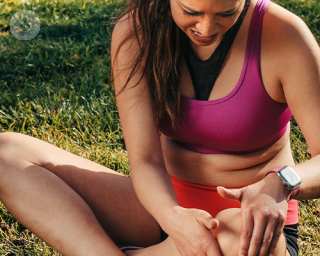

All about ACL reconstruction surgery
By Mr Saket Tibrewal
2025-01-07
The nature of an ACL tear can lead to complications if it goes untreated, particularly knee instability. In this comprehensive article, leading orthopaedic knee surgeon Mr Saket Tibrewal discusses the ins and outs of ACL reconstruction. See more
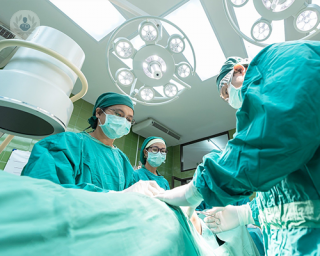

All you need to know about surgery for sports injuries
By Mr Neil Jain
2025-01-07
Orthopaedic specialist Mr Neil Jain explains the types of surgery for sport-related injuries and the non-surgical alternatives to help you understand your options. See more
Experts in Sports injuries
-
Mr Manoj Sood
Orthopaedic surgeryExpert in:
- Hip replacement
- Knee replacement
- Anterior cruciate ligament
- Sports injuries
- Knee cartilage replacement
- Tendon injuries
-
Mr Steven Corbett
Orthopaedic surgeryExpert in:
- Sports traumatology
- Sports surgery
- Sports injuries
- Shoulder surgery
- Elbow Pain
- Elbow arthroscopy
-
Mr David Houlihan-Burne
Orthopaedic surgeryExpert in:
- Meniscus
- Knee arthroscopy
- Anterior cruciate ligament
- Arthritis
- Sports injuries
- Sports traumatology
-
Mr Jonathan Lucas
Paediatric orthopaedicsExpert in:
- Traumatic injury
- Paediatric orthopaedics
- Scoliosis
- Sport growth factors
- Sports injuries
- Spinal surgery
-
Mr William Bartlett
Orthopaedic surgeryExpert in:
- Sports injuries
- Hip replacement
- Hip pain
- Knee replacement
- Knee arthroscopy
- Hip arthroscopy
- See all

Kings Park Hospital - part of Circle Health Group
Kings Park Hospital - part of Circle Health Group
Polmaise Road Stirling FK7 9JH
No existe teléfono en el centro.
By using the telephone number provided by TOP DOCTORS, you automatically agree to let us use your phone number for statistical and commercial purposes. For further information, read our Privacy Policy
Top Doctors

The Cavell Hospital - part of Circle Health Group
The Cavell Hospital - part of Circle Health Group
Cavell Dr, Uplands Park Rd, Enfield EN2 7PR
No existe teléfono en el centro.
By using the telephone number provided by TOP DOCTORS, you automatically agree to let us use your phone number for statistical and commercial purposes. For further information, read our Privacy Policy
Top Doctors

The Alexandra Hospital - part of Circle Health Group
The Alexandra Hospital - part of Circle Health Group
Mill Ln, Cheadle, SK8 2PX
No existe teléfono en el centro.
By using the telephone number provided by TOP DOCTORS, you automatically agree to let us use your phone number for statistical and commercial purposes. For further information, read our Privacy Policy
Top Doctors
-
Kings Park Hospital - part of Circle Health Group
Polmaise Road Stirling FK7 9JH, StirlingExpert in:
- Vascular Surgery
- Cardiology
- Colorectal surgery
- General Surgery
- Neurological spinal surgery
- Plastic surgery, reconstructive and aesthetics
-
The Cavell Hospital - part of Circle Health Group
Cavell Dr, Uplands Park Rd, Enfield EN2 7PR, North LondonExpert in:
- endoscopy
- Gastroenterology
- Shoulder and elbow
- Hand and wrist
- Otolaryngology
- Foot and ankle
-
The Alexandra Hospital - part of Circle Health Group
Mill Ln, Cheadle, SK8 2PX, CheadleExpert in:
- Hip
- Cardiology
- Shoulder and elbow
- Paediatrics
- Foot and ankle
- Knee
- See all
- Most viewed diseases, medical tests, and treatments
- Trigeminal neuralgia
- Chronic headache
- Peripheral nerve block
- Migraine
- Joint pain
- Testicular ultrasound
- Lumbar herniated disc
- Breast ultrasound
- Abdominal pain
- Shoulder pain
